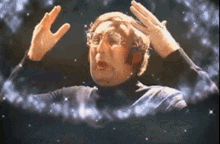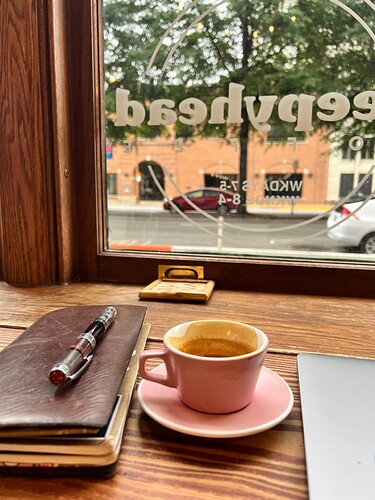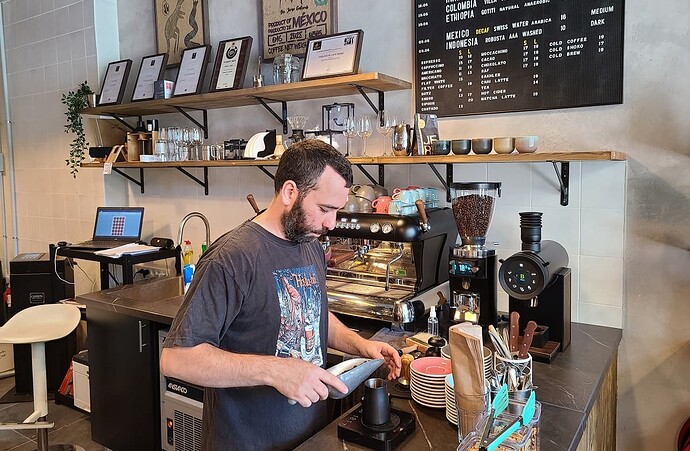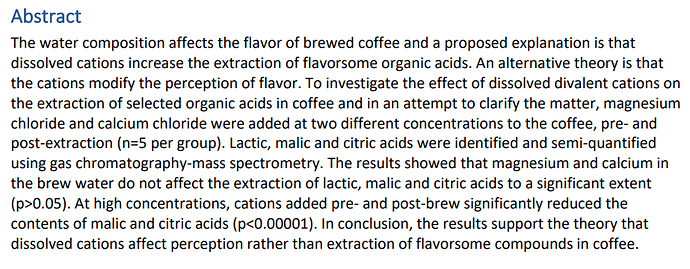I do. But for a Melbourne roaster. Not sure that is much use to you!
https://www.klatchcoffee.com/products/sumatra-mutu-batak
I’ve had this same coffee from a different roaster and it was excellent. Quite different from the bright, acidic stuff I normally drink–wasn’t like that at all. Very cedary in a good way, earthy, slightly floral. It had only the slightest hint of acidity. Klatch is greater Los Angeles area but I dunno if any locations are actually close to you. Looks like their current coupon code is WELCOME10 which isn’t as good some of the ones I’ve used in the past, but this particular coffee isn’t that expensive.
There are some others you might enjoy too. Just avoid the ones with fruit notes. I’ll link the single origins but they have “espresso” offerings which appear to be blends.
https://www.klatchcoffee.com/products/single-origin-hawaiian-kau-typica?bgIndex=0
^^ This one is pretty expensive, courtesy of Hawaii and their overhyped coffee. It’s real Hawaii typica though (but K’au region, not Kona) which not many people have had including me. We’ve talked about it in here before but a lot of the HAWAII KONA stuff is fake, just like the Jamaica Blue Mountain. It often gets falsely used as marketing hype term to charge artificially high prices. All of the real stuff is typica varietal though, and obviously Klatch isn’t selling fake Hawaii.
Thanks - there’s one in Pasadena about 15 minutes from me, will check it out.
most decent roasters will have tasting notes
are you looking for something that will be consistently available or do you want to constantly be trying new stuff?
I’m in chatanooga for the weekend, there are a few decent-seeming coffee bars downtown, I pop into one and get an espresso and I get …
It’s perfectly cromulent, but if you’re going to have a fancy coffee bar downtown in a historic building, how are you not offering a spoon and sparkling water with espresso? It’s twenty twenty two, as in two zero two two.
also how is it 2022 and the rotation data on pics from my iphone is always fucked up?
Thanks. I think after reading this thread, the @pvn observation is something that I just assumed everyone agreed with (as I know nothing about coffee and have no opinions), but then I ran in to some IRL coffee drinkers and they seemed to think espresso was harder to make.
Ok, this is a dumb question, but what do you need that stuff for?
The spoon is for stirring. A lot of people prefer to stir the crema in.
The sparkling water is just traditionally served with espresso
Thanks. I probably looked like a total rube the two times in my life I’ve had an espresso.
Nah nobody is paying attention
No it’s definitely not a popular opinion. It’s just that a lot of people tend to parrot old ideas about filter that are based on everyone drinking Starbucks dark roasts in 2001. When I first started, the “filter is easy” people said the Baratza Encore is the best grinder you’ll ever need, and that your coffee starts to stale after two weeks off roast. From that outdated perspective, filter is certainly easier. What changed is that LRSO filter became increasingly popular over the past decade.
When you pull an espresso shot, you get useful feedback in the form of time:output ratio and also visual cues. You can use that information with taste to make an adjustment and quickly pull another shot. That’s why every competent barista begins the day by dialing in the espresso. There’s no similarly useful feedback for filter, and you can’t brew it nearly as quickly. You have to do it completely by taste, and there are a lot of weird areas of the map you can get stuck in and won’t be exactly sure which way to go.
So I guess it depends on what you mean by easier and perfectly. I took it to mean getting to the point where you could passably serve those drinks professionally. There are many people–several in this thread even–whose experience with cafe specialty pour over is extremely sour coffee. It’s a common complaint which seems to indicate that it’s not as easy as many people think, especially given that I rarely hear or read about people being served terrible espresso.
the grinder at my new favorite fancy coffee place i wrote about looks pretty awesome. you guys should get one
That’s the Bentwood Vertical 63 ($2,750).
Lance has talked about it before, but most recently I saw it on this water chemistry video he did (audio is bad so cliffs below):
Lance talks to Samo Smrke, the scientist doing real coffee research (same guy from the academic talk on off-gassing).
-
He says two things matter for water: alkalinity and total hardness.
-
Alkalinity is especially important for filter coffee because it’s about five times weaker than espresso, yet has about the same pH level. So filter is especially sensitive to water chemistry because small changes in acidity lead to much larger relative changes in cup profile.
-
He goes on to point out that specialty coffee ratings are highly correlated to acidity ratings. Acidity is also correlated with aroma. Furthermore, since coffee is an acidic drink, getting the acids right for dark roasts matters too even though the they don’t taste “acidic.” (Fair point, although I’d say dark roasts are far more forgiving in this regard.)
Those are the big water takeaways that we already knew. Here’s the wild stuff:
-
Although we can easily tell from sensory tests that mineral hardness (specifically Ca2+ and Mg2+ cations) significantly affects flavor, the science of how this actually works is murky.
-
He cites an undergraduate thesis* that shows adding minerals to the coffee after extraction was chemically not (statistically) different from brewing with water containing the minerals. In other words, the implication here is that you could just add the minerals after brewing since they’re acting as flavor modifiers, not extractors.

If true, that changes my understanding of coffee extraction quite significantly. Here’s the abstract:
*Samo claims it is high-quality research, but it’s still just one undergraduate thesis so take that for what it’s worth. Link to full paper here:
http://www.diva-portal.org/smash/record.jsf?pid=diva2%3A1546046&dswid=-4659
I thought it would more expansive tbh
yeah this seems extremely counterintuitive, has this study been replicated?
Haven’t looked but it’s from 2021 so I highly doubt it. Also, dunno how familiar you are with the fraudulent inner workings of science but I assume you know the general phenomenon of replication crisis. In the fields I was in, submitting a replication to any journal that could provide you tenure would result in an instant LOL_replications desk rejection. It would have to be some totally startling thing you could package with the replication that would draw major media attention to the paper / journal. Even then, most of the ones I’m familiar with wouldn’t publish it.
is this idea here that nobody has any incentive to try to reproduce anything?
Right, you have zero incentive to do that if you’re trying to remain employed. If you hire in as an assistant on tenure track, you generally have five years to publish X papers in journals >= Y quality. The more prominent the research institution, the higher those cutoffs are gonna be. It depends on the field, but it can take years from starting a project to actual publication, and so you wouldn’t waste precious clock time attempting replications if you know the target journals won’t publish them.
Only a very small proportion of academic journals in psychology and neurosciences explicitly welcomed submissions of replication studies in their aim and scope or instructions to authors. This does not encourage reporting on, or even attempts to perform, replication studies. Among 1,576 researchers surveyed by Nature in 2016, only a minority had ever attempted to publish a replication, and several respondents who had published failed replications noted that editors and reviewers demanded that they play down comparisons with the original studies. An analysis of 4,270 empirical studies in 18 business journals from 1970 to 1991 reported that less than 10% of accounting, economics, and finance articles and 5% of management and marketing articles were replication studies.
If you wanna get an idea for how corrupt it is, just scan the titles on one of my favorite sites:
This one is especially good:
White House official banned from publishing in PNAS following retraction
The move, first reported by Axios, comes ten months after PNAS retracted a paper that Lubchenco had edited despite the fact that one of the authors was her brother-in-law and that she had been his PhD advisor.
And don’t forget to check out the leaderboard!
- Before brushing
- Within 30 minutes after brushing
- Within an 75 minutes after brushing
- Over 75 minutes after brushing
0 voters



